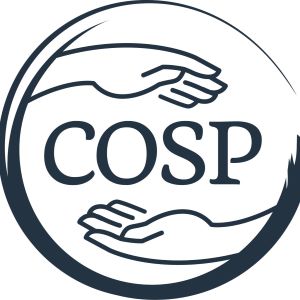How Does Learning Happen?
Reflecting on Your View of Learning
One of the most fundamental questions early childhood educators must ask themselves is, “How does learning happen?” If our school systems are ever going to go beyond their current practices of giving and regurgitating information, we need to understand deeply how learning occurs.
- When you think of learning, what do you think of? Where do you picture?
- On an occasion where you would say you learned a lot, what was happening?
- What learnings have you most deeply remembered and integrated into your life?
- What does it mean to know? to understand? to learn?
- How do you believe learning happens?
Only as we answer those fundamental questions will we be able to teach and learn differently. As we reflect individually, through study, and with our colleagues, we deepen our understanding of ways to support children’s learning.
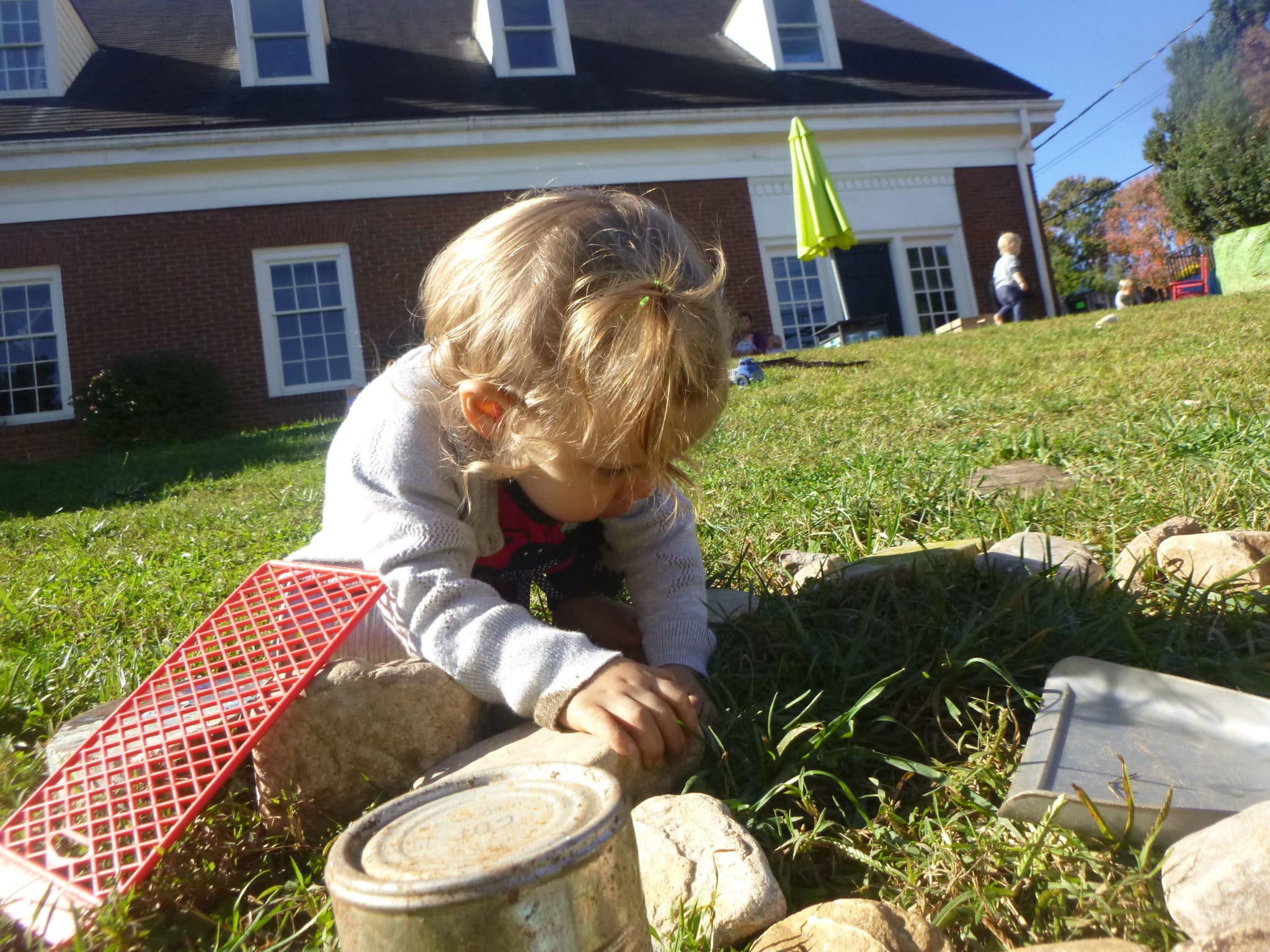
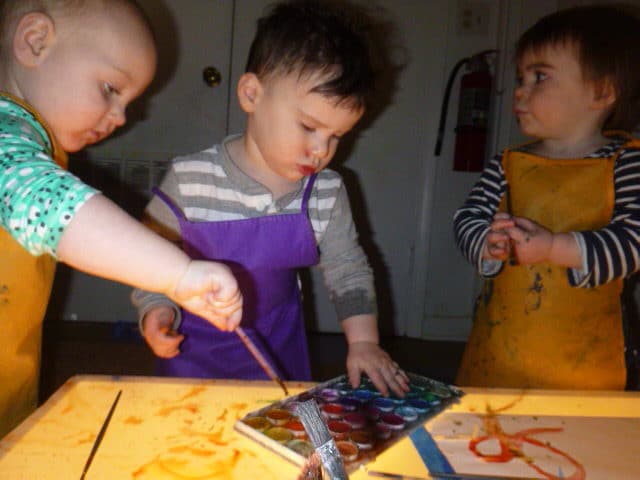
What is the Role of Adults in Children's Learning?
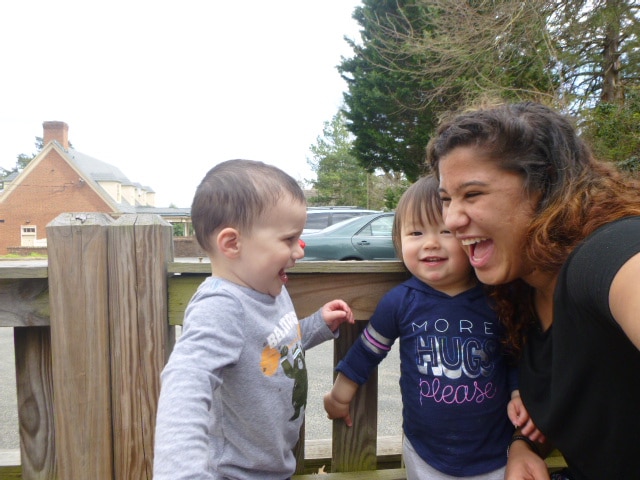
In this new model, caregivers are no longer experts that give knowledge, but they still have a number of essential roles they can play to enhance children’s learning and provide deeper support. Adults have a lot of power even in a social constructivist learning environment to shape children’s experiences. As children get older, they will hold more of the learning process, but in early childhood, adults drive much of the plan and reflect steps.
Our Neighborhood believes in social constructivism. Simply that children learn best in the context of secure social relationships, and they construct knowledge through play. We believe that learning happens when children are engaged with others in play. While this seems fairly simple, this is a rather new view of how learning happens. Our Neighborhood rejects the old model of teachers being the all knowing givers of information, and sees children as the drivers of their own learning. Children drive their play, engaging with others, both peers and adults, and revise their theories through engagement with new ideas and information.
We believe in a model of learning that places children, the learner, in the center of the cycle, and sees learning in each part of the process. It is through play that new knowledge is constructed, integrated, and remembered. If play is poorly planned, it is unlikely to result in deep learning. After play, we reflect through documentation, discussion, and wait time. It is in reflection, that learning is integrated with other ideas and challenged. This reflection drives the planning of deeper and increasingly more complex play, through which more knowledge is constructed. In planning, we gather hypothesis, questions, and resources. After planning we return again to play.
Plan for Learning
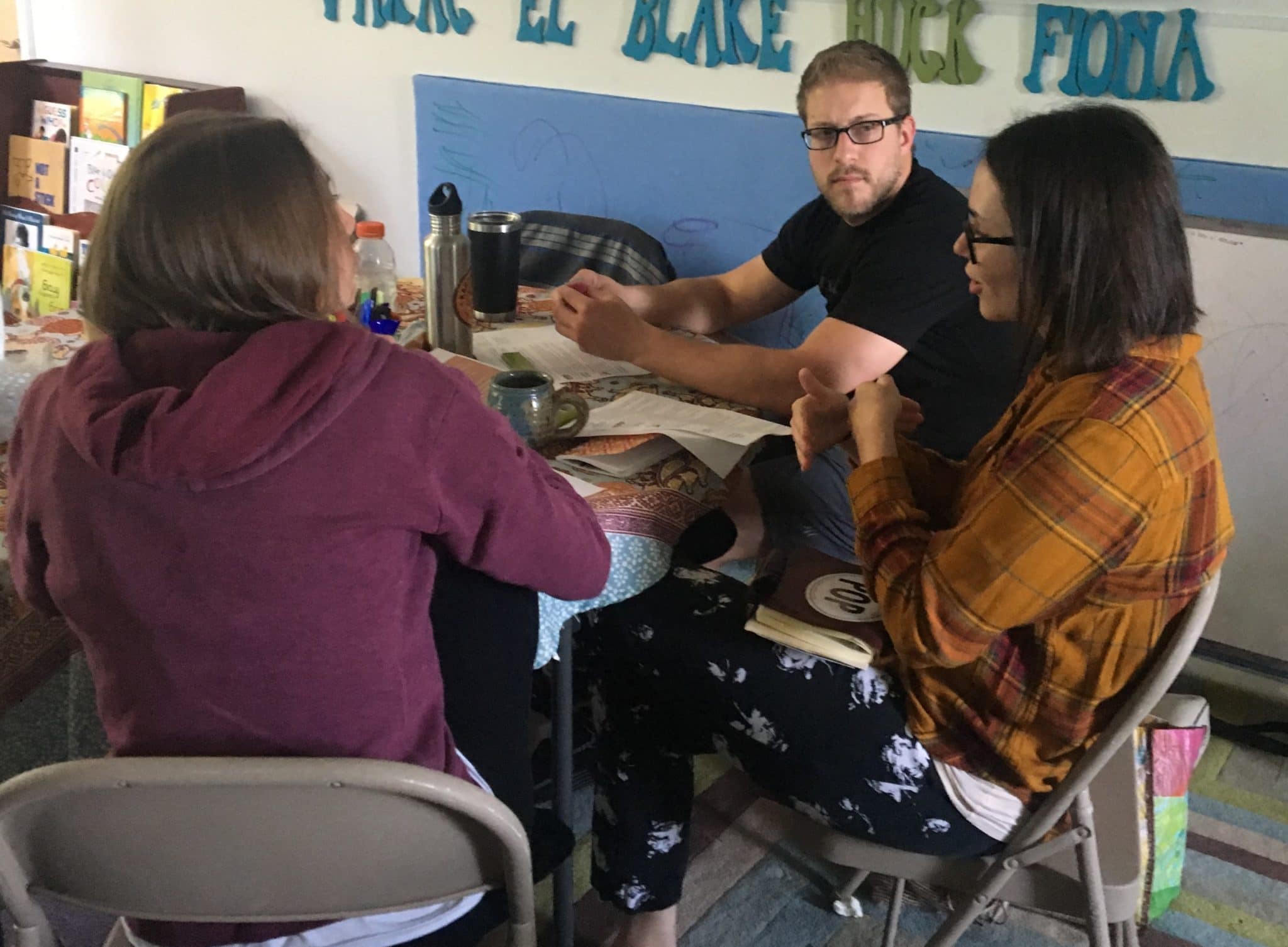
Adults support learning largely by creating a plan for children to have intentional experiences. Adults choose the environment, materials, and group structure that holds space for high quality experiences. There are also crucial background elements that provide for children’s basic needs. When children’s needs aren’t met, learning doesn’t happen. Creating a functional schedule and routines is essential to children’s learning.
- Design Environments
- Offer Materials
- Structure Groups for Learning
- Create Schedule and Routines
- Provide for Children’s Basic Needs
Join With and Coach Play in the Learning Process
In the moment, you can enhance or interfere with children’s play. There is a process for a reflective adult to step in and step back based on what they’re observing and their goals. Your role ultimately is to un-intrusively help children go just a little bit deeper in their learning. There are numerous ways to get involved with and coach children while supporting them to be self-directed life-long learners.
Be careful not to interfere, direct, or take over.- Research has shown when adults get too involved in children’s play, children disengage and follow the adult instead of thinking and going deeper in their learning.
Instruct and draw boundaries when necessary.- In light of that research, adults sometimes back off too much. We must draw boundaries and instruct children to be able to keep them safe and facilitate deeper learning process, especially around children’s use of tools or materials. Ex: “Markers are for paper.” or “This is the drill bit, it moves very fast and is sharp, keep your hands clear.” or “Babies like gentle touches like this.”
Promote Reflection
To keep the play moving deeper, part of our role is to promote reflection on and learning from play. Like planning, in the early years this role is largely in the hands of the adults. Reflection is a crucial part of the learning process and eventually the goal is that children will engage in their own reflections to deepen their process. Ultimately, our goal is that children will know what they enjoy and why. We want to help children see their unique strengths, struggles, personality, motivation, and approaches to learning. Adults can create regular structures that promote reflection and make reflection a part of everyday conversations. Our language also shapes children’s experience; language that invites reflection avoids judgment, labels, and evaluation.
Coaches invite players to evaluate what was working or not working from the last game. They show videos of the game to reflect on and videos of the opponent’s game to learn from. Giving players opportunities to get regular feedback from experiences and dialogue improves practice. A reflective family meeting structure would include time for gratitude or celebration in addition to problem solving. Simple tools like the Rose and Thorn of the Day invite children to build their reflective practice.

